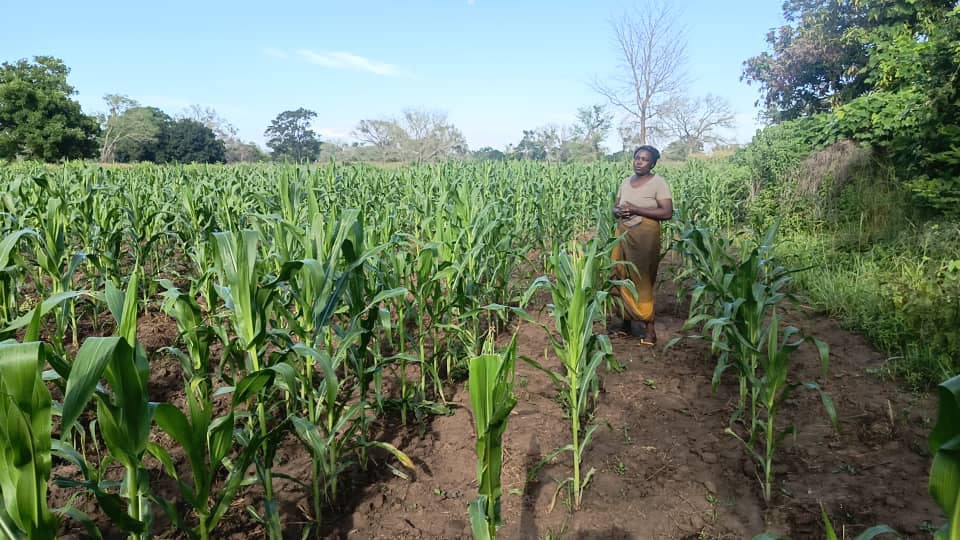Those of you that knew my stepson, Nick, well would remember he had a knack for ARGUING. He would often argue a point and then turn around 5 minutes later and argue the other side. And he had an interesting habit of saying, “No!” to Ronda when asked to do something for her – and then ultimately doing exactly what she asked him to do. Today’s text reminded me of Nick, and I invite you to consider this story from Matthew’s recording of the Good News:
Matthew 21:28-32 But how does it seem to you? A man had two children; going to the first, he said, ‘Child, go work in the vineyard today,’ But he in answer said, ‘I will, Lord,’ and did not go. And going to the second he spoke in the same way. And in answer he said, ‘I do not wish to,’ and later regretted it and went. Which of the two did the father’s will?” They said, “The latter.” Jesus says to them, “Amen, I tell you that the tax-collectors and prostitutes are going before you into the Kingdom of God. For John came to you on the path of rectitude, and you did not trust him; but the tax-collectors and prostitutes trusted him; yet, having seen this, you did not later feel regret and trust him.”
My second title for title for this post was something like: “WE DO WHAT WE BELIEVE.” In Nick’s case, he actually loved his mom and would often ultimately do what she asked. In the text. the religious leaders with whom Jesus was talking had been suggesting that Jesus wasn’t actually a representative of God, and I believe the point Jesus was making in this parable was that we can tell the SOURCE of the POWER by the ACTION that is taken. In other words, Jesus was who He claimed to be, and we can tell this by what he DID.
The same could then, maybe, be said of the rest of us. Many of us say we are followers of Jesus. What, then, should we be doing? I think this parable has a terrific clue for us. He brings in John the Baptist. For those listening to Jesus on that day, this was a VERY fresh memory. They knew who John was, and they knew what John taught. I wonder, do we?
Earlier in this Jesus story there are some important quotes of John the Baptist:
Matthew 3:1-2 Now in those days comes John the Baptist, making his proclamation in the wilderness of Judaea, Saying, “Change your hearts; for the Kingdom of the heavens has drawn near.”
Matthew 3:3:7-8 But seeing many of the Pharisees and Sadducees coming to baptism he said to them, “Brood of vipers, who divulged to you that you should flee from the wrath that is coming? Bear fruit worthy of a change of heart;
I want to consider a couple of important phrases from Matthew’s story before we jump to another source for quotes from John the Baptist. Matthew says, first of all, that John demanded a “change of heart”. He doesn’t define it well, which is maybe why WE haven’t defined it well in our day. And then a few verses later, he instructs them to “Bear fruit worthy of a change of heart.” Once again, not very defined, but essentially pointing to my secondary title:
If I mash those two statements together, I might come up with this: First we must TRULY have a CHANGE OF HEART, then our ACTIONS will demonstrate what we BELIEVE.
But again, Matthew leaves this rather vague, and I don’t know if this was purposeful or not. So to put a little more meat on the bones of the message of John the Baptist, we need to look at Luke’s version of the Good News.
Luke 3:7,8a So he said to the crowds going out to be baptized by him, “Brood of vipers, who divulged to you that you should flee from the wrath that is coming? Bear fruits, then, worthy of a change of heart…”
Sound familiar? Almost word for word the text from Matthew’s story. But the people with whom he was talking had the same thought we had: “That’s kind of vague, JB”. But Luke gives us some important, additional information about the actual message of John the Baptist and the “fruits” about which he may have been talking.
Luke 3:10-14 And the crowds questioned him, saying, “What then should we do? And in reply he said to them, “Whoever has two tunics must share with him who has none, and whoever has food must do likewise.” And the tax-collectors also came to be baptized, and they said to him, “Teacher, what must we do?” And he said to them, “Collect nothing more than you are required to.” And men serving in the army also questioned him, saying, “And we too, what should we do?” And he told them, “Neither extort from, nor falsely accuse, anyone; and be contented with your wages.”
This forms a beautiul three part sermon in the tradition in which I was raised. A three part sermon I never heard, by the way. Or if I did, it had to have been interpreted differently than I currently see it. Thoughts on the three parts:
- “The crowds” – this would seem like the very impoverished people by whom both John and Jesus were well received. When they said, “John, this is too vague!! Just tell us what to do!!” The answer: SHARE WITH ONE ANOTHER. Whether your clothing or your food. LOVE is the answer. Those that have followed my writing for any length will recognize this text as a very early text with which Rog and I wrestled AND a text that forms an important base in the formation of Shoulder 2 Shoulder itself. What are “fruits worthy of a change of heart?” According to Luke’s story: SHARE.
- The tax-collectors. Wow. This ties right into the parable from Matthew 21, where Jesus tells His listeners that the tax-collectors and prostitutes had responded rightly to John’s teachings. It says they “trusted him.” But what was the message? The tax-collectors were wealthy Jews who got wealthy by cheating the poor out of what little they had. John said, STOP IT! And apparently some did. I’m thinking of Matthew himself. A former tax-collector who became a disciple of Jesus, and from whom the story in today’s text is attributed. And I’m also thinking about Zachaeus, another tax-collector whose story is told in Luke chapter 19. When he “trusted him” the change was DRASTIC and IMMEDIATE!
- The men serving in the army. This is a tougher one for me to understand. Are these Jews serving in theRoman or some Israelite army? Maybe “zealots”? Or was John actually baptizing Roman soldiers? I can’t answer those questions. But the message: don’t use your POWER and PRIVILEGE as an opportunity for your own gain. That one smarts just a little even though I have never picked up a sword or a gun…
For me, the Matthew parable about actually DOING what we BELIEVE is NOT a reminder to do what I say I believe. I think we unconsciously already DO what we BELIEVE. So it isn’t about being more diligent in doing something. It is an opportunity to go inward a bit, consider what it is I am actually DOING, and recognize THAT IS ACTUALLY DEMONSTRATING WHAT I BELIEVE!
Like the son in the parable, Nick did what his mom asked, even if his initial response was to argue or say, “no.” What about us? We may SAY we are “doing the Father’s will.” Are we? Do we even know what the will of the Father is?
I believe the will of the Father is exactly what the message of John seems to suggest: He wants us to LOVE and SHARE and CARE FOR one another. PERIOD. Granted, I do NOT always know how to work out that will in every specific situation. That can definitely be tricky. But as an overall life direction, I do believe this is how I should be living my life. And I don’t think you would have to look very hard to convince yourself that is, indeed, what I believe, based upon my actions. NOT PERFECTION. And NEVER arriving. But LOVING, SHARING, and CARING for my brothers and sisters is THE driving force in my life today.
It might be you would say you believe the will of the Father is something different than my interpretation of the messages of John and Jesus. After all, the message of Jesus has been interpreted many different ways over the last 2,000 years. So does the way you are living your life line up with those supposed beliefs?
I will close with this thought from the text: Jesus says to them, “Amen, I tell you that the tax-collectors and prostitutes are going before you into the Kingdom of God. I believe when Jesus prayed, “Thy will be done on earth as it is in heaven” he was referencing this “Kingdom of God.” God’s will being done on earth. I believe that will is the SHARING, CARING, LOVING about which John taught. I believe that will is the SHARING, CARING, LOVING about which Jesus taught. I believe that will is the SHARING, CARING, LOVING about which Paul taught. I believe that will is the SHARING, CARING, LOVING about which John (not the Baptist) taught.
Jesus told the wealthy of His day in this text they were likely to miss out, and that those they were judging were likely to take part in the Kingdom of God (God’s will here on the earth) before they did. Elsewhere Jesus reminded them all just how difficult it would be for a wealthy person to enter into this Kingdom of God. I don’t know if the wealthy of Jesus day had their needs, wants, collections, vacations, yardens, retirements, and generally a fear of some horrible tragedy striking for which they might need to horde everything they had amassed. But Jesus said they were likely to miss out. Are we missing out today? What is it we actually believe? Does it line up with these teachings?








